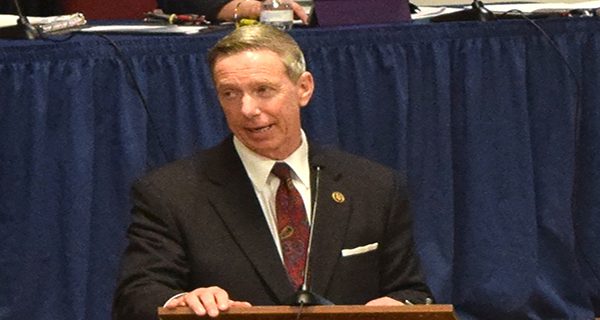[ccfic caption-text format="plaintext"]
Walpole Town Meeting representatives passed a Tax Increment Financing (TIF) agreement between the Town of Walpole and Siemens at a Special Town Meeting on March 7 with a vote of 76-51.
The Tax Increment Financing agreement would grant Siemens a reduction in new property taxes for a proposed $300 million expansion project the company is considering for its Coney Street facility in Walpole. The expansion calls for the construction of 708,700 square feet of new space at the facility and would create between 400 and 700 new jobs.
The TIF agreement would last for 20 years, granting the company a reduction on the real estate taxes of the new expansion. The TIF would start at a 90 percent reduction in taxes on the new expansion, and would fall by ten percent every five years, ending at a 60 percent reduction in taxes for the final five years. It averages out to a 75 percent reduction in property taxes over 20 years.
Walpole stands to gain between $3.8 million and $6.8 million over the 20 years of the agreement depending on the exact number of new jobs the expansion creates, according to an economic impact analysis conducted by RKG Associates. The gains include projected increases in spending on food, meals and retail items, excise taxes, property taxes and more.
The analysis was commissioned by the Board of Selectmen to analyze the fiscal impact of the expansion to Walpole.
The TIF agreement also stipulates that Siemens must provide the town with a number of payments to cover certain costs associated with the project, including $250,000 for a new fire truck for the fire department, $160,000 for new snow removal equipment for the town, $100,000 to build a new town park and playfields, and reimbursements associated with the costs of the Town Meeting and consultant expenses.
During the town meeting, a number of town officials and representative town meeting members gave their thoughts on the project.
Congressman Stephen Lynch (D-MA) spoke in favor of the proposal. He noted how valuable jobs in the STEM sector are, and said the proposal will be good for Walpole and the community.
“I know why Siemens wants to locate here,” Lynch said. “Walpole has a lot going for it, it has a sense of community.”
Walpole Board of Selectmen Chairman Clifton Snuffer highlighted what Walpole stands to gain if the agreement is passed, including jobs, business growth and more.
“This was, and is, a competition of global proportions,” Snuffer said. “It is Walpole competing against other states and countries, not against any other Massachusetts cities or towns.”
Selectman David Salvatore, who has been a vocal opponent of the proposed tax agreement, stressed that the proposal is not fair to the taxpayers of Walpole.
Representative Town Meeting members expressed mixed feelings about the proposal. The most common criticism from members came from questions on the fairness of the proposal.
Ken Guyette, a member of the Walpole Finance Committee, spoke for the dissenting Finance Committee members who had previously voted against proceeding with the TIF agreement.
He noted that entering into the TIF with Siemens could set a precedent to other businesses that they can seek tax cuts to expand or build in Walpole, and questioned why Walpole will be giving tax cuts to Siemens for 20 years while the state will recoup its $20 million investment through development grants in five to seven years.
“What is business friendly is fairness to all businesses, large and small, not just one multi-billion dollar corporation.” Guyette said.
Town Meeting Member John Leith noted the question of fairness came up with every one of the constituents he talked to about the proposal.
“One universal sentiment that was expressed to me, whether they were in favor of the TIF or against the TIF, every single person said ‘this is not fair,’” Leith said.
Other residents expressed their support for the project. Nancy Gallivan, a member of the School Committee, noted that the money the town gains from the project can help offset costs in the budget that would otherwise go to residential taxpayers.
“Walpole basically gets its revenue from three different sources: commercial property taxes, residential property taxes and state aid,” Gallivan said. “If we increase one, it takes relief off of the other.”
Lance Longwell, Siemens Healthcare Diagnostics Director of Communications, was pleased with the final outcome of the vote.
“We are pleased [with the vote]. It was certainly a lively discussion,” Longwell said.
Longwell explained that the next step in the process is for Siemens is to take the results of the vote back to the company’s Board of Directors to continue working out the details of the expansion. He noted that the process could take a while to complete.
“We do not have an exact time frame on when we will break ground,” Longwell said.

























